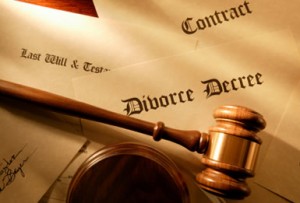 BANKRUPTCY DIVORCE LAWYERS NJ
BANKRUPTCY DIVORCE LAWYERS NJ
Our New Jersey bankruptcy lawyers engage in litigation over disputes about the discharge of certain types of debts arising from divorce proceedings filed in the Superior Court of New Jersey.
Debts considered to be in the nature of “alimony, maintenance, and support” (“Domestic Support Obligations”) are not dischargeable in any bankruptcy case. The Bankruptcy Code defines Domestic Support Obligations as debts which are owed
“to a spouse, former spouse, or child of the debtor and not of the kind described in paragraph 5 [11 U.S.C.§523(a)(5)] that are incurred by the debtor in the course of a divorce or separation or in connection with a separation agreement, divorce decree or other order of a court of record, or a determination made in accordance with State or territorial law by a governmental unit”.
11 U.S.C. §523(a)(15).
As simple as the definition of Domestic Support Obligations would appear, the Bankruptcy Court is not necessarily bound by how debts are labeled in family court property settlement agreements, orders or final judgments of divorce. Thus, when parties enter into marital property settlement agreements each should be mindful of how these agreements would hold up in a future bankruptcy proceeding.
Equitable Distribution Obligations Can Be Discharged in a Chapter 13 Case
Although Domestic Support Obligations are not dischargeable in a Chapter 7 bankruptcy case, certain financial obligations owed to an ex-spouse may be dischargeable in a Chapter 13 Bankruptcy case.
Chapter 13 bankruptcy cases involve a reorganization – a debt repayment plan – in which the debtor is required to commit his or her income to creditors for a period of between 36 and 60 months. In Chapter 13 cases, a debt which is owed “to a spouse, former spouse, or child of the debtor and not” in the nature of “alimony, maintenance, and support” (“Domestic Support Obligation”), may be discharged. In other words, unlike a Chapter 7 case, equitable distribution obligations can be discharged in a Chapter 13 bankruptcy filing. Bankruptcy Code Section 1328(a)(2) clarifies that certain debts, which would otherwise not be discharged in a Chapter 7 bankruptcy case, can be discharged in a Chapter 13. This is often referred to as the “Super-Discharge” available in Chapter 13 cases.
Thus, when one ex-spouse files for Chapter 13 bankruptcy it may open the door to argue whether a debt previously listed in a property settlement agreement as alimony or support should be deemed dischargeable as equitable distribution.
Our attorneys have substantial experience in litigating dischargeability of Domestic Support Obligations and equitable distribution in Chapter 7, Chapter 11 & Chapter 13 bankruptcy proceedings in the United States Bankruptcy Court for the District of New Jersey.
Bankruptcy Divorce Lawyers NJ
Are you a debtor or creditor requiring assistance in prosecuting or defending an action to dispute the discharge of a Domestic Support Obligation or equitable distribution claim?
Our bankruptcy litigation attorneys are here to help. Contact our experienced bankruptcy lawyers today to discuss your case. One of our lawyers will respond to your inquiry within 24 – 48 hours. For urgent matters, please contact us at (201) 870-4938.
Contact Us Today to Discuss Your Legal Matter.
For emergent matters, please call us at (201) 870-4938
